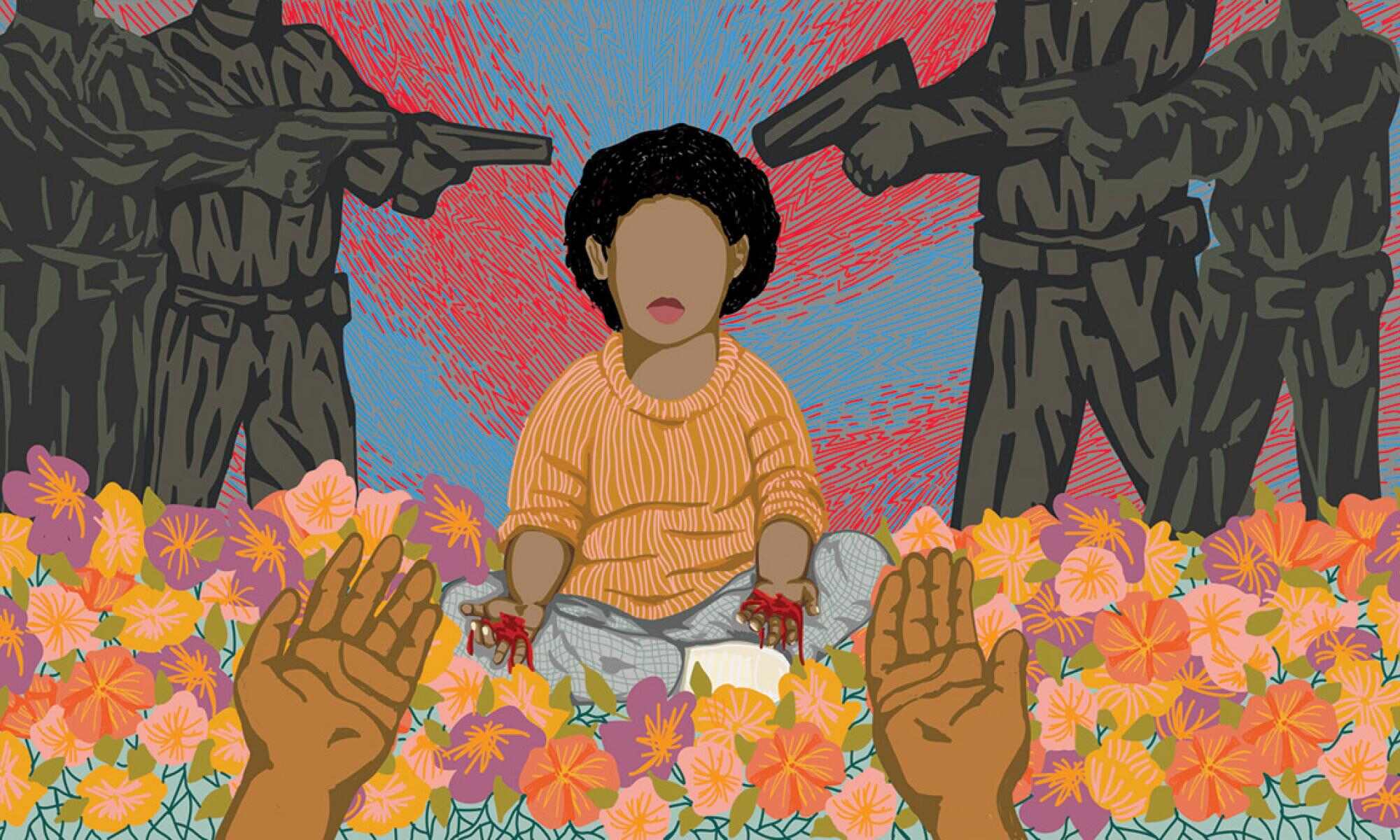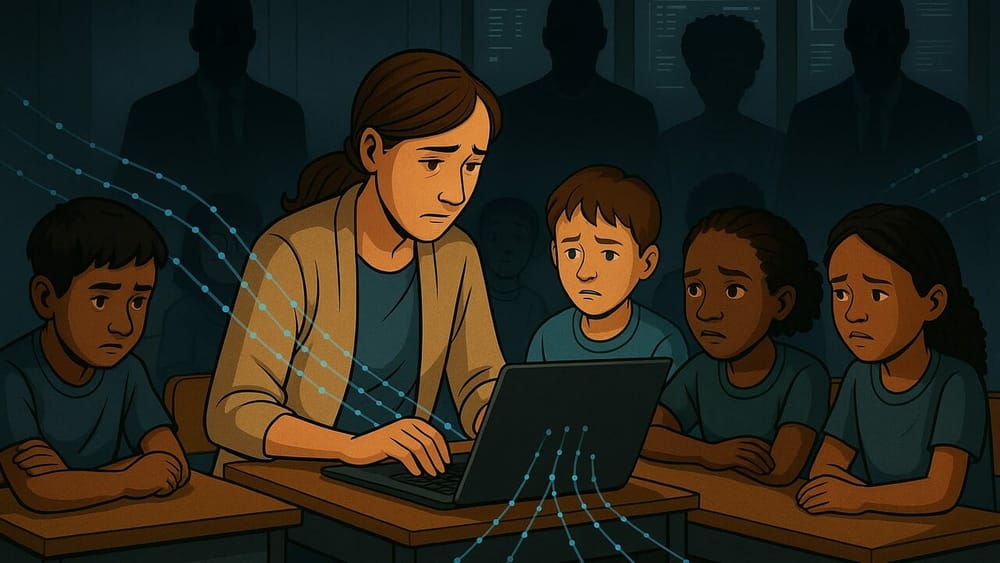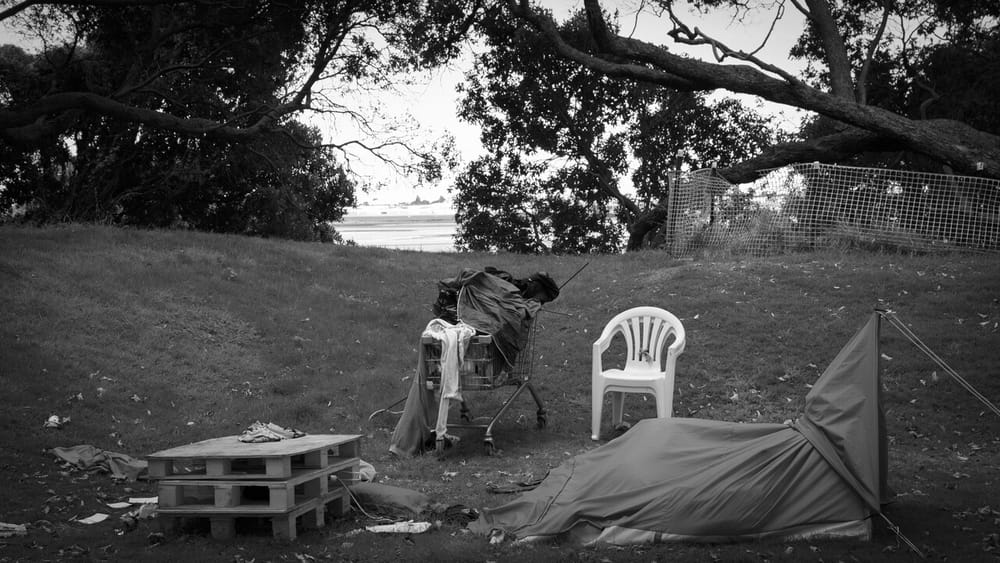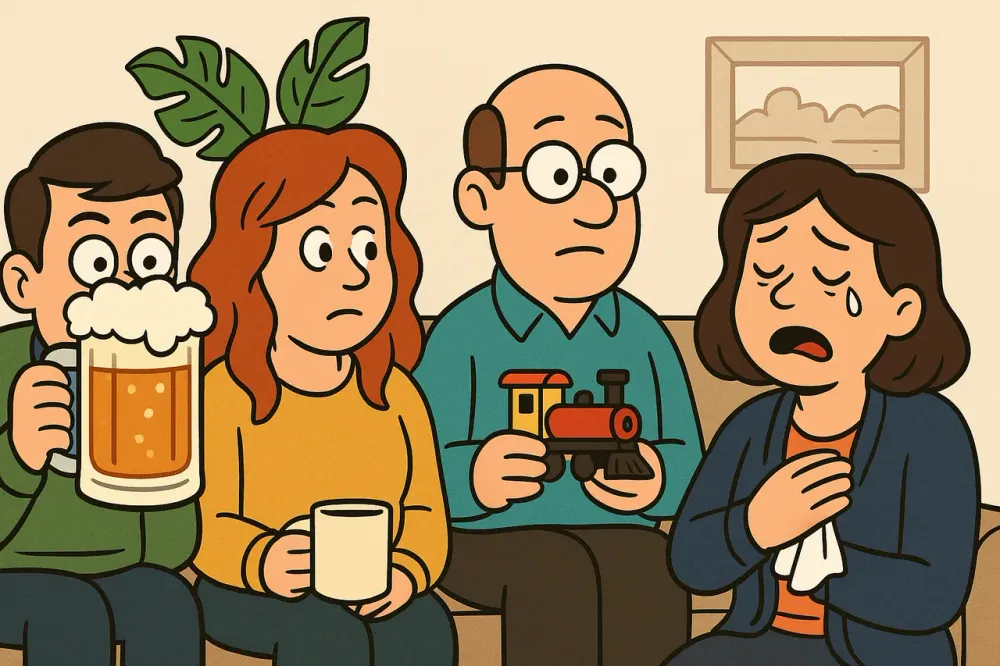Social Fiction
In our first social fiction piece, we explore what the world might look like without police. Follow the story of Montrell Waites and Ava Thomas as they navigate a world after the last law-keeping body has been dismantled. We hope this aspirational vision inspires you to consider solutions beyond your comfort zone—solutions that offer a better and safer planet for all of us.
Ava
I could hear the voices whispering in my head clear as day:
“They will hurt you, so you need to stop them. Do whatever it takes, whatever it takes.”
They were right last time, the voices, so I knew I could trust them. Last time, the people in the store had called the police, and they had slammed me onto the pavement, pushing down hard, making it difficult for me to breathe. I remember crying as I gasped for breath, the cold metal biting into my wrists as they fastened the handcuffs tightly around them. They dragged me into the back of a car and took me away. I didn’t know what was happening; all I could hear was the screaming and shouting. I was scared. My heart felt like it was going to explode.
I asked them for my meds but they didn’t listen; then everything went black.
Montrell
I had heard the name Ava Thomas before because of a particular case back in summer. She had stolen some milk from the store, and it just so happened an officer was parked on the street nearby. So the shop owner called on him and then things escalated. Although he has consistently denied it, the officer used unnecessary force, resulting in Ava Thomas sustaining injuries to her head and passing out in police custody. It turned out she had a complex medical history and had been refused her meds by the officer despite repeatedly asking for them. The officer got a three-week suspension without any additional charges, which sadly didn’t come as a surprise. All he got was a slap on the wrist when the girl could’ve died for God’s sake! Since then, the name Ava Thomas hadn’t appeared on the radar again... until recently.
* * *
My name is Montrell Waites and I am a member of the mental health unit in the community development team (CDT). The CDT replaced traditional police officers following the national vote for change which took place just over a year ago, after years of protests and fighting to push the idea of police reform. Like many others, I had voted for the reform even though I believed the chances of the result going in my favour were slim. However, as time passed I started to better understand what it was people were trying to achieve.
I had a lot of different reasons for voting the way I did. I was sick of seeing people in the neighbourhood being killed or seriously hurt by the police officers that were supposed to be protecting them. I had watched friends spend years behind bars for petty crimes; they were just some of the many victims of the corrupt and racist justice system. I saw footage of my best friend’s death at the hands of the police shared repeatedly across social media. Every day I had to walk my brother to school, a result of the fear he felt that he might get a second beating from the racist police officers he passed each day—until one day my brother decided to end his own life instead of living in fear. So when the time came and I had the opportunity to vote for change, I stepped up.
The result of the vote led to major cuts to the police budget. The cut funds were distributed to develop the community by building more green spaces, renovating youth centres and giving more funding to schools. Within a year, it was clear, not just from the figures but from the newfound sense of community within the neighbourhood, that this system was better. The crime rates had gone down, people were getting the help they needed and there were greater job opportunities. The CDT in my neighbourhood is made up of predominantly Black, Asian and Latinx members, in comparison to what was previously a mostly White police force. The mix of races is a true reflection of the neighbourhood because it consists of its inhabitants.
The whole concept of the CDT is based on the fact that there are many professionals who are often better equipped to handle a particular situation than the police. The CDT is made up of trained experts in fields including mental health, substance abuse, homelessness and domestic violence, to name a few. So now, when someone calls the emergency line, the right expert will be sent to the scene based on what is being reported.
Before I was enrolled, I had to complete multiple qualifications which involved a mixture of theory-based exams and working out in the field with mental health professionals such as psychologists and social workers. I didn’t have any mental health qualifications when I started so I had to take a series of extra exams at the beginning to assess my understanding and knowledge prior to completing the full course. Even now, after almost a year on the job, I still receive training on a day-to-day basis. I enjoy this role a lot because I feel that you can never stop learning. My training definitely prepared me for the events that transpired that day.
* * *
When we arrived, the store window was smashed, the owner was frozen behind the counter with a strong look of fear in his eyes and two shoppers were hiding in the back corner of the store. Myself and my co-worker Tim were facing Ava as she stood opposite us, her hand covered in blood from the broken glass shard she was clutching. She was muttering uncontrollably under her breath.
Ava
“Stay back! I won’t let you hurt me again!” I shouted as I looked from the owner to the two other men that were watching me. They didn’t look like police, but I still didn’t trust them. For all I knew, they could’ve been undercover. I didn’t mean to smash the window but as soon as I stepped into the shop, the owner looked angry and he reached for something; so then I panicked. I started having flashbacks from last time and I couldn’t think straight. I was scared. I lost control, and then the next thing I knew, the window was smashed.
Last time I was at the shop, the man from the shop called the police officer to attack me. All I wanted was some milk. I was going to come back with the money; I had just forgotten my purse. I wasn’t trying to hurt anyone; I was just thirsty.
“They’re going to hurt you again; don’t trust them, you can’t. Remember what they did last time?” whispered the voice. I had flashbacks to the last time I visited the store. I could feel the cold, hard, concrete pavement on the side of my face as they forced me to the ground. I tried to tell them I was going to get the money, but they wouldn’t listen to me. They shouted and screamed and told me I was lying. I still have nightmares from that day.
But there was something different about the two men that were standing in front of me during my second visit; they didn’t try to grab me; they just sat on the floor and spoke to me calmly. They asked me why I was there and who I was talking to.
“Don’t trust them,” whispered the voice.
“Shut up! Stop talking!” I shouted back.
I was confused; the voice in my head was telling me one thing, but these two men didn’t seem like the police officer that had previously attacked me. They had no weapons; they didn’t shout; they just continued to sit there, speaking to me. I answered their questions and told them about the voices as I cautiously sat on the floor opposite them. I sat with them and we spoke. I don’t know how long for, but we spoke and I started to feel better. They cleaned up my hands; they didn’t shout; they didn’t hurt me; they just listened.
Montrell
The approach myself and Tim usually take in these kinds of situations is to always stay calm. We didn’t want to frighten Ava, especially after what had happened to her in the past, so we sat down slowly and talked things through with her. We had learned from previous experiences that in a lot of situations, all it takes is listening and understanding to diffuse a situation—brute force isn’t always the answer. In this case, it was clear she was talking to the voices in her head, so we asked her to tell us about them to distract her. Before we knew it, she was sitting on the ground with us, talking in detail about what was going on inside her head. She was so distracted that she didn’t notice Tim signalling the other customers and the store owner to discreetly leave the store. We eventually calmed her down after an hour or so, until something strange happened. Ava had been tightly clutching her hand in a fist up until then; then slowly, she loosened her grip, dropping a handful of change onto the hard floor. It was the money she owed for the milk she had taken back in summer. It turned out she had come back to the store to pay for it.







